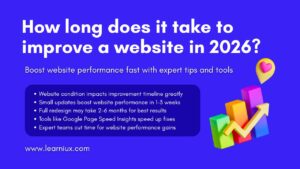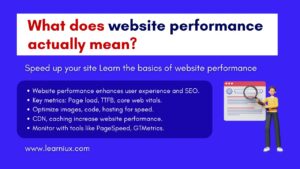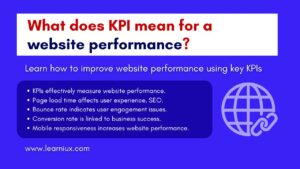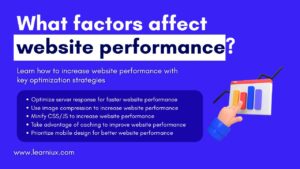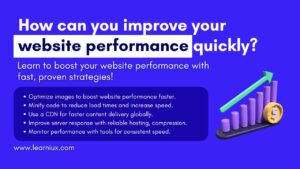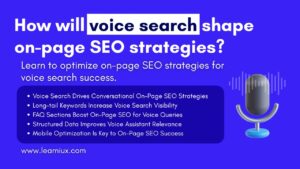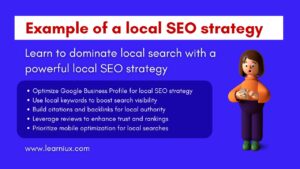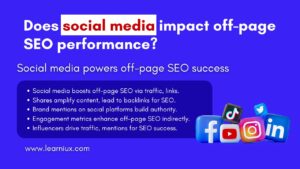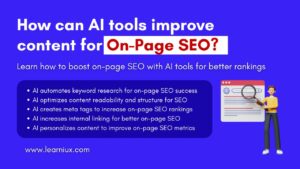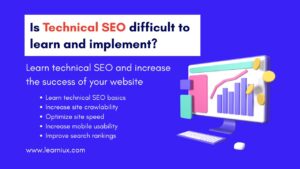Off-page SEO refers to all the activities performed outside of a website to improve search engine rankings. Unlike on-page SEO, which focuses on optimizing elements within a website such as content, meta tags, and site structure, off-page SEO focuses on building a website’s authority, credibility, and visibility through external efforts. Understanding the types of off-page SEO is important for anyone who wants to build a strong digital marketing strategy that drives organic traffic and increases their online presence. This article will explore the different types of off-page SEO, their importance, and how they contribute to improving search engine rankings. By using these techniques, businesses and individuals can strengthen their website’s authority, attract more relevant traffic, and establish a strong digital footprint.
Off-page SEO plays a key role in how search engines determine the relevance and credibility of a website. It involves strategies that build relationships, establish credibility, and create a network of external signals that point to your website. These signals help search engines determine the quality and authority of your content. By focusing on different types of off-page SEO, you can improve your website’s visibility, increase referral traffic, and increase its ranking potential. Search engines like Google rely on these external signals to measure a website’s popularity and credibility, making off-page SEO an indispensable part of any SEO strategy. Types of off-page SEO include a variety of techniques, each technique contributing uniquely to a website’s search engine performance. Let’s dive into the most effective strategies that form the backbone of off-page SEO.
One of the most important types of off-page SEO is link building. Link building involves acquiring high-quality backlinks to your own website from reputable websites. These backlinks act as a vote of confidence, signaling to search engines that your content is valuable and trustworthy. High-quality backlinks from authoritative websites carry more weight than numerous low-quality links, so you should always focus on relevance and authority when pursuing link-building opportunities. Effective link-building strategies include guest blogging, where you write articles for other websites in exchange for a link back to your site, reaching out to industry influencers to secure mentions or links, and creating shareable content that naturally attracts links, such as infographics, research studies, or in-depth guides. For example, publishing well-researched articles on industry-related blogs can not only increase traffic but also provide valuable backlinks that increase your site’s authority. However, link building requires careful execution, as search engines penalize manipulation practices such as buying links or participating in link farms. To be successful, prioritize getting links from websites that have high domain authority and are relevant to your niche.
Another essential form of off-page SEO is social media marketing. Social media platforms like Instagram, Twitter, LinkedIn, and Facebook offer powerful opportunities to drive traffic to your website and increase brand awareness. By sharing content, interacting with followers, and participating in relevant conversations, you can grow your online presence. Social media signals, such as likes and shares, may not directly influence search rankings, but they contribute to brand visibility and referral traffic, which indirectly support off-page SEO efforts. For example, viral posts on social media can increase website visits and encourage other websites to link to your content, creating a buzz. Consistent and strategic social media activities, such as posting engaging content, responding to comments, and joining industry-related discussions, can help establish your brand as a trusted voice in your field. To maximize the impact of social media as an off-page SEO strategy, focus on creating content that your target audience will love and encourage sharing, such as visually appealing graphics, informative videos, or thought-provoking posts.
Content marketing, when implemented off-site, is another powerful form of off-page SEO. It involves creating valuable content such as blog posts, infographics, videos, or e-books that are published on external platforms. For example, guest posting on an authoritative blog allows you to showcase your expertise, drive traffic to your website, and earn backlinks. Similarly, contributing articles to industry publications or creating viral content for third-party websites can significantly boost your off-page SEO efforts. The key to successful content marketing as an off-page SEO strategy is to create high-quality, relevant content that provides value to readers. For example, an in-depth guide published on a reputable industry blog can attract backlinks from other websites and establish your brand as a thought leader. Additionally, creating shareable content such as infographics or videos increases your chances of getting natural backlinks, as other websites can reference or embed your content. To be successful at content marketing, focus on identifying platforms and audiences that match your niche and consistently deliver content that meets their needs and interests.
Influencer marketing is another effective form of off-page SEO. This strategy involves collaborating with influencers in your industry to promote your brand, products, or content. Influencers who are trusted and have authority over their audience can share your content, link to your website, or mention your brand, which can increase both traffic and credibility. For example, influencers in the fitness industry can share links to your blog posts, which can expose your content to a larger audience. Choosing the right influencers who align with your brand values and have an engaged audience is key to maximizing the impact of this off-page SEO technique. Effective influencer marketing requires building genuine relationships with influencers and providing them with valuable content or products to share. This approach not only increases traffic, but also builds your brand’s reputation, as endorsements from trusted influencers convey credibility to both users and search engines.
Online reviews and reputation management are often overlooked forms of off-page SEO, yet they play a crucial role, especially for businesses with a local presence. Positive reviews on platforms like Google My Business, Yelp, or industry-specific directories build your brand’s credibility and influence local search rankings. Encouraging satisfied customers to leave reviews and responding to feedback professionally can help strengthen your online reputation. For example, a restaurant with a high number of positive reviews on Google is more likely to rank higher in local search results, which in turn attracts more customers. A strong reputation signals trustworthiness to both users and search engines, making reputation management an essential off-page SEO strategy. To take advantage of this technique, proactively monitor review platforms, respond to both positive and negative reviews, and encourage happy customers to share their experiences. This not only improves your online reputation but also contributes to higher visibility in search results.
For businesses with a physical presence, local SEO citations are a key form of off-page SEO. A citation is the mention of your business name, address, and phone number (NAP) in online directories, review sites, or local listings. Consistent and accurate citations help search engines verify the legitimacy of your business and improve local search visibility. For example, listing your business on industry-specific directories like Google My Business, Bing Places, or TripAdvisor for hotels can boost your local SEO performance. It’s crucial to make sure your NAP information is consistent across all platforms, as discrepancies can confuse search engines and hurt your rankings. Submitting your business to reputable directories and updating your listings regularly can increase your local search presence and drive more people to your physical location.
Participating in online forums, discussion boards, and communities like Reddit or Quora is another effective form of off-page SEO. By answering questions, sharing expertise, and providing value in relevant discussions, you can drive traffic to your website and build authority. For example, you can attract interested readers by answering a question on Quora about digital marketing strategies and including a link to a relevant blog post on your website. The key is to contribute meaningfully without spamming, as genuine participation builds trust and enhances your brand’s reputation. Including links to your content in the right places can also generate backlinks, which can further boost your off-page SEO efforts. To be successful in forum and community participation, focus on the platforms where your target audience is active and provide thoughtful, helpful responses that showcase your expertise.
Brand mentions, even without a direct link, are an emerging form of off-page SEO. When your brand or website is mentioned on other websites, blogs, or social media, it creates a digital footprint that search engines can identify. These mentions contribute to your brand’s authority and relevance in your industry. For example, if a popular blog mentions your brand without linking to your website, it still signals to search engines that your brand is notable. Promoting unlinked mentions through PR campaigns, partnerships, or media outreach can boost your off-page SEO efforts and improve your online visibility. To capitalize on brand mentions, focus on building relationships with journalists, bloggers, and industry leaders who can mention your brand in their content.
As search engine algorithms evolve, new types of off-page SEO are gaining importance. For example, voice search optimization is becoming increasingly important as more users rely on voice assistants like Siri or Alexa to find information. Creating content optimized for voice search queries, such as conversational phrases or question-based keywords, can increase traffic and improve your off-page SEO performance. Similarly, appearing as a guest on an industry podcast is an innovative way to build authority and attract an engaged audience. For example, sharing insights on a popular marketing podcast can increase brand visibility and potential backlinks from the podcast’s website. Staying up-to-date with these emerging trends ensures that your off-page SEO strategy remains competitive and aligned with modern search behaviors.
To get the most out of the different types of off-page SEO, it’s important to follow best practices. Prioritize quality over quantity in link building and content marketing, focusing on acquiring links and creating content of real value. Be consistent with your brand’s NAP information for local SEO to avoid confusion and increase visibility. Engage with your audience authentically on social media and forums, building trust through meaningful interactions. Monitor your online reputation to maintain a positive image and respond promptly to reviews. Collaborate with relevant influencers and authoritative platforms to increase your reach and credibility. By combining these methods, you can effectively leverage various types of off-page SEO to increase your website’s performance.
Implementing different types of off-page SEO requires a strategic approach tailored to your business goals and target audience. For example, a local business might prioritize local SEO citations and online reviews, while an e-commerce website might focus on link building and influencer marketing. No matter your industry, diversifying your off-page SEO efforts is key to creating a well-rounded strategy. Combining multiple types of off-page SEO, such as link building, social media marketing, and content marketing, can create a synergistic effect that boosts your results. For example, a guest post on an official blog can earn backlinks, drive traffic, and be shared on social media, all of which can provide multiple benefits from a single effort.
It’s important to measure the success of your off-page SEO efforts to ensure you’re achieving your goals. Tools like Google Analytics, Ahrefs, or Moz can help you track metrics like referral traffic, backlink quality, and domain authority. Monitoring these metrics can help you assess which types of off-page SEO are yielding the best results and adjust your strategy accordingly. For example, if you notice that guest blogging is driving significant traffic and backlinks, you can allocate more resources to this strategy. Regularly analyzing your performance helps you stay agile and adapt to changes in search engine algorithms or user behavior.
Off-page SEO types are not static; they evolve as search engines improve their algorithms and user preferences change. Staying informed about industry trends and experimenting with new strategies can give you a competitive edge. For example, as video content continues to dominate online consumption, creating engaging videos for platforms like YouTube or TikTok can become a valuable off-page SEO tactic. Similarly, leveraging user-generated content like customer testimonials or social media posts can increase your brand’s credibility and attract organic backlinks. By being proactive and responsive, you can ensure that your off-page SEO strategy remains effective in the long run.
Finally, it’s important to understand how many different types of off-page SEO exist in order to create a comprehensive SEO strategy. From link building and social media marketing to emerging trends like influencer collaborations, local citations, and voice search optimization, each type plays a unique role in increasing your website’s authority and visibility. By strategically implementing these off-page SEO techniques, you can increase organic traffic, build credibility, and achieve long-term success in search engine rankings. Start exploring these types of off-page SEO today to strengthen your online presence and stay ahead in the competitive digital landscape. Whether you’re a small business, an e-commerce platform, or a personal blog, harnessing the power of off-page SEO can help you reach your audience and achieve your digital marketing goals.






















